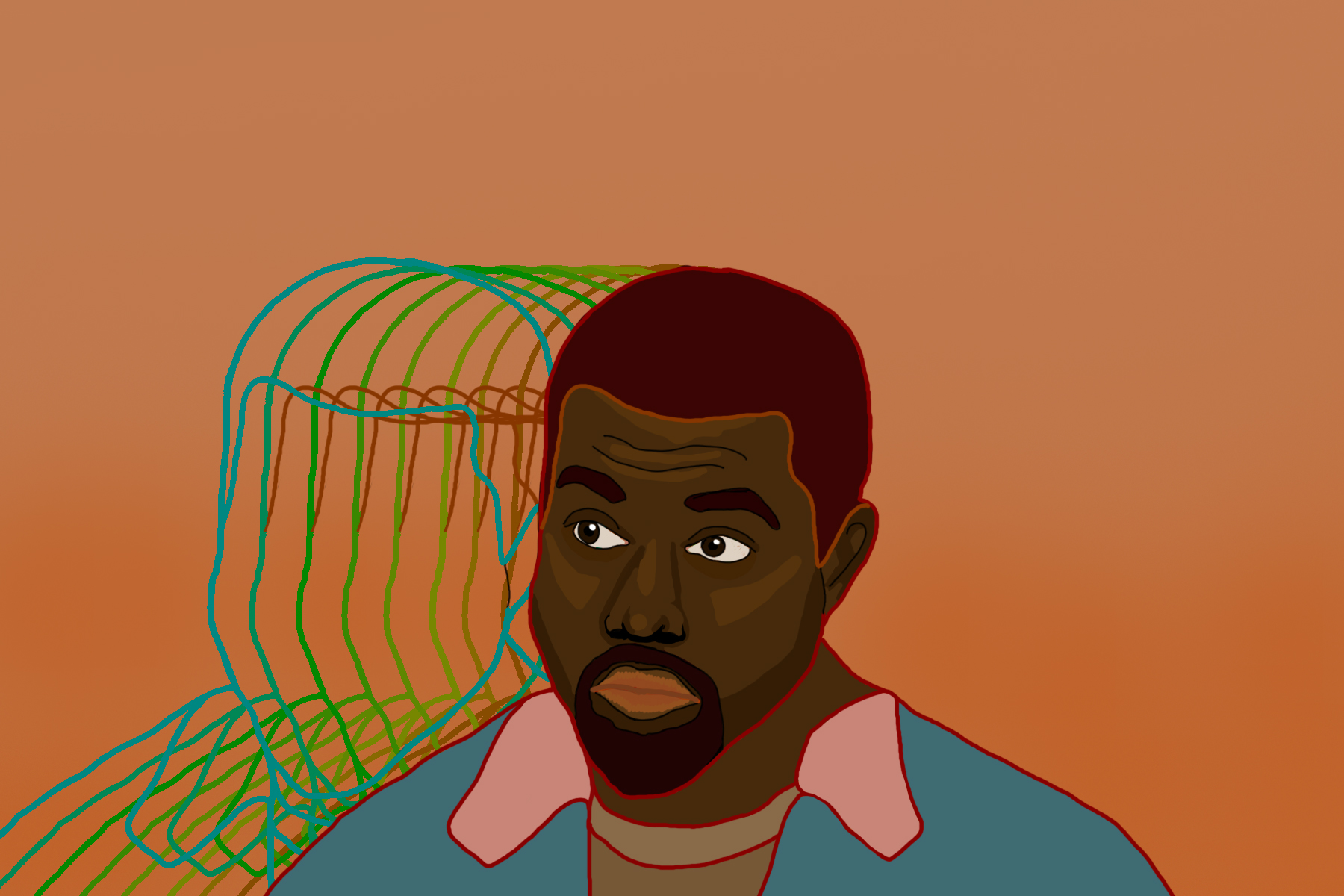For some of us, Kanye West’s latest release this October was a chance to look back with heightened nostalgia on “The College Dropout.” For others, he’s either strengthened his appeal or just our confusion.
At first glance, the formidably titled “Jesus Is King” seems a kind of perverse circle back to the virtuousness of his 2004 single “Jesus Walks.” West is back to rapping about Jesus, but this time he’s both overtly religious and … manic. The openly bipolar artist has never been one to hold back from the occasional godly allusion, but his latest record aggressively seizes the big question without reeling in the ego. His trademark sampling of traditional gospel leads harder than ever in the opening two tracks, “Every Hour” and “Selah,” where we hear and feel — at least — what we think is the point he’s trying to make at its most powerful and unadulterated.
Besides his release, 2019 birthed West’s grandiose and exclusive weekly “Sunday Services” — now a cultural phenomenon — and his refusal to make secular music in the future. Though this won’t send all of his listeners into religious fervor or out to purchase the new Yeezys, scarily it probably has sent at least a few.
While spirituality is free, religious institutions are worth billions of dollars. This accrual of power has always existed, perhaps best embodied by the megachurch. Celebrity endorsement of these chain churches as well as the celebrity status of their leaders are problematic, but also help these entities function even more like businesses. Without having to pay taxes.
The release of “Jesus Is King,” West claims, is only the beginning. Recently the artist shared a stage with televangelist Joel Osteen at his Lakewood Church in Houston, which the pair sold out.
The celebrity pastor, streamed live to 20 million a month in over 100 countries, has a net worth around $50 million. The fact that Kanye “God is using me to show off” West would baptize himself in Osteen’s prosperity gospel, the theology that prayer can (literally) make you rich — or in other words, “When you’ve got West on your side, you’ve made it” — is less than refreshing. Tickets that were previously free were being resold for $500.
Surprisingly “Ye” isn’t even the first of the Kardashian clan to throw a Sunday service. Kris Jenner founded the California Community Church of Calabasas in 2012; the cost to become a member was startlingly high. West’s equally exclusive Sunday Service, overpriced clothing line and concert tickets on top of his existing wealth and inflated ego have become cornerstones for the judgement of his piety.
Music and the church have been used to accomplish monumental acts of good, specifically in the black community. Themes of injustice, unity and black perseverance are present in the album. Kanye West recently held a surprise, uplifting performance at a predominately black Texas prison, but his message is often clouded by ego or an equivocal line like, “No church on Sunday, you my Chick-fil-A.” Nonetheless, West expected bad reception from all sides, predicting in his ninth track, “Hands On,” that Christians “will be the first ones to judge.”
In a time best characterized as polarizing, there’s no better way West could’ve stratified cultural and party lines than with his treatment of religion. Well, apart from donning a MAGA hat. He’s always been soul-bearing and provocative, but his aggressive treatment of “Jesus Is King” is bound to further divide listeners. Regardless, the larger moral dilemma lies in his possible leveraging of existing polarization for personal gain.
What is it that Kanye really wants? My best guess would be to change the culture, along with becoming a “Christian Genius Billionaire” renaissance man like Elon Musk, who’s apparently here for it.
West’s been looking to expand his reach in every possible direction this year, building from his massively successful Yeezy brand and running with the momentum of his ninth consecutive No. 1 album, the third track of which (“Follow God”) brings a new wave of originality and colorful synths reminiscent of his 2007 album, “Graduation.”
He’s attempting to build dome-shaped homes inspired by James Turrell’s Roden Crater, making sustainable Yeezy shoes from algae and purchasing an over 6,000-acre ranch near Cody, Wyoming, where he allegedly has plans to bring his brand’s production back to the U.S. and house what he’s called “Yeezy Campus.”
This isn’t the first time West has preached to us. When it comes to spirituality, it’s usually best to say “to each their own” and hope the next person agrees. Things become hairy when spirituality is molded to religion, soaked in pop culture and mass distributed, but as of now West is a far cry from the worst manipulations of art, religion and power. He might be the most viral, but we’ve developed a higher tolerance to his ‘Ye-ness in the meantime. No matter how over it you are, he’s still out here.
















